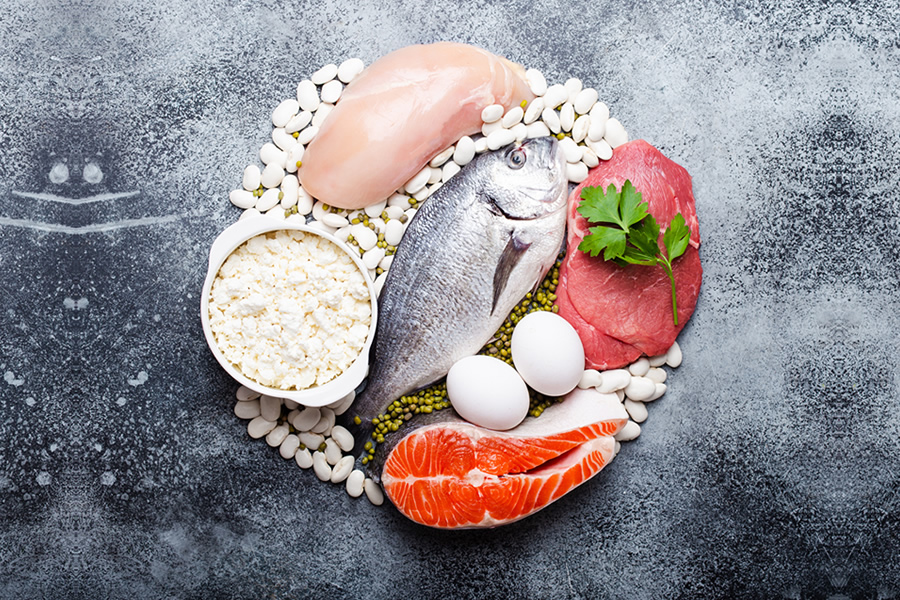A high protein (lean meat), lower carbohydrate meal plan can lower your cholesterol and triglyceride levels.
Some of my clients still worry that any meat whether it is lean or not will raise their cholesterol including their triglycerides and lead to heart disease. I re-assure them that a lean meat, lower carbohydrate meal plan where carbohydrate composes less than 50% of total daily calories would typically reduce their triglyceride levels. I reinforce with them that I am not talking three steaks a day here but lean meats such as chicken, turkey, fish and yes, even eggs.
So, what does cause elevated triglycerides? The most common causes of high triglycerides are obesity and poorly controlled diabetes. If you are overweight and are not active, you may have high triglycerides, especially if you eat a lot of carbohydrate or sugary foods or drink a lot of alcohol.
Evidence from a statement released by the National Heart, Lung and Blood Institute, panel on Detection, Evaluation, and Treatment of High Blood Cholesterol in Adults (ATP III), suggests that very high intakes of carbohydrates (CHO) (greater than 60 percent of total calories) are accompanied by a rise in triglycerides. The recommendation by ATP III regarding dietary carbohydrate intakes should be limited to 60 percent of total calories. Lower intakes (e.g., 50 percent or less of calories) should be considered for people with metabolic syndrome who have elevated triglycerides or low HDL cholesterol (the good cholesterol).
In addition, the decades old recommendations that “fat” is bad for your heart and is the main culprit for obesity still lingers today with many people. The truth – fat is necessary, useful, and efficient, but how much do you need? The answer depends on what type of fat you are talking about.
Types of fat – fats come from plants, animals, and test tubes. Plant fats come from seeds, nuts, vegetables and even fruits. Animal fats come from the adipose tissue of dietary meats. Dairy such as cheese and milk are animal by-products. Artificial fats (trans-fats) are produced in factories. They are not natural, but man made.
Most experts no longer consider saturated fats the evil they were once thought to be. It used to be believed that these fats would raise bad cholesterol because saturated fat triggers cholesterol production by the liver, but research is challenging that long held belief. Saturated fats are needed for the construction of cell membranes, organ padding, and nerve sheathes. They also play an important role in hormone production and are required for the proper absorption of some minerals and fat-soluble vitamins including A, D, E, and K.
Unsaturated fats boost artery-cleaning good cholesterol (HDL), lower triglycerides, regulate blood clotting, help maintain a healthy blood pressure and are key players in proper brain function. Some examples of unsaturated fats that are loaded with omega-3 fatty acids and good for your heart health: Salmon, Herring, Mackerel, Halibut, Tuna, Cod, wheat germ oil, walnuts, flax meal, olive oil and mango.
There is still one bad fat! There is one fat that the body does not need – a special subset of saturated fats called trans-fat and you should avoid it! Trans-fats are the test tube fats. They have been strongly linked to an increase in heart disease, stroke, and type 2 diabetes. Trans-fat wipes out healthy cholesterol (HDL) and increases the bad cholesterol (LDL). Guess where you find the most trans-fats? Processed bready carbs!
A real food diet with fresh fruits and vegetables, lean meats, and high omega-3 sources such as olive oil, fish and raw nuts, and an individualized exercise program is the way to go for your future heart health. For weight loss use the real food diet as your base and follow a lower carb meal plan based on your individualized needs. You do not have to be on an Atkins diet or Paleo diet with extremely low daily carb amounts to lose weight, but just get your individualized carb number for weight loss determined by a licensed credentialed Registered Dietitian.

